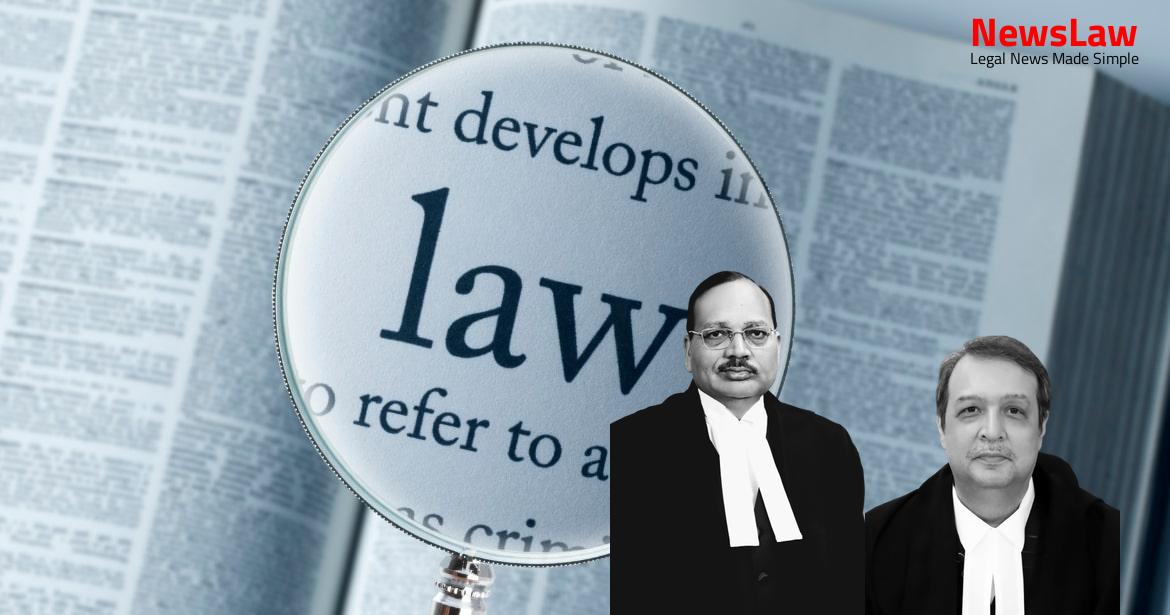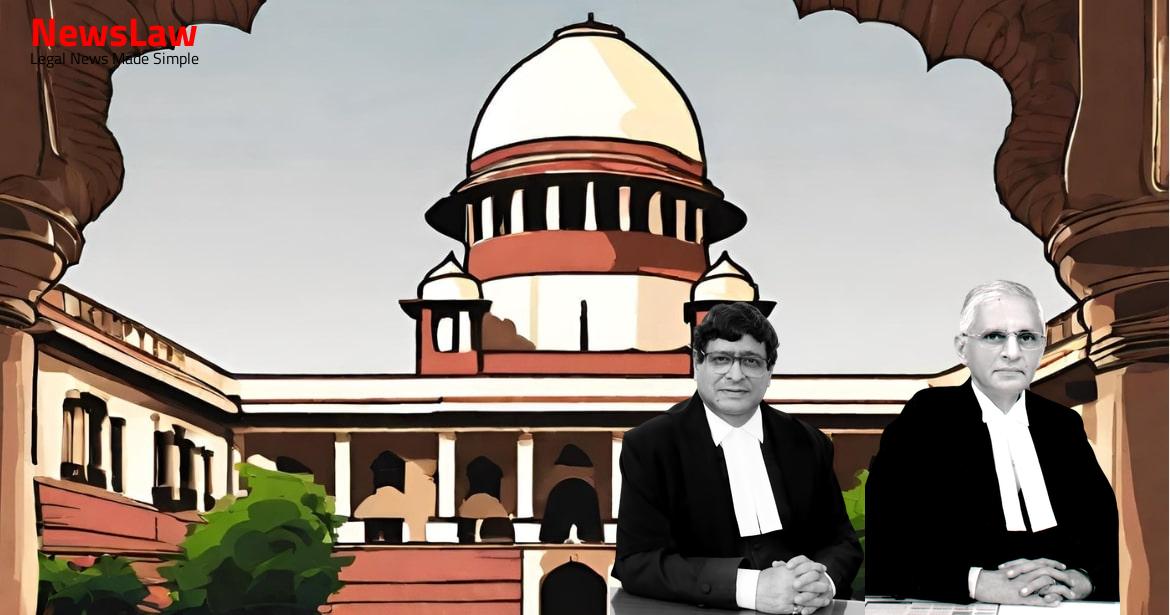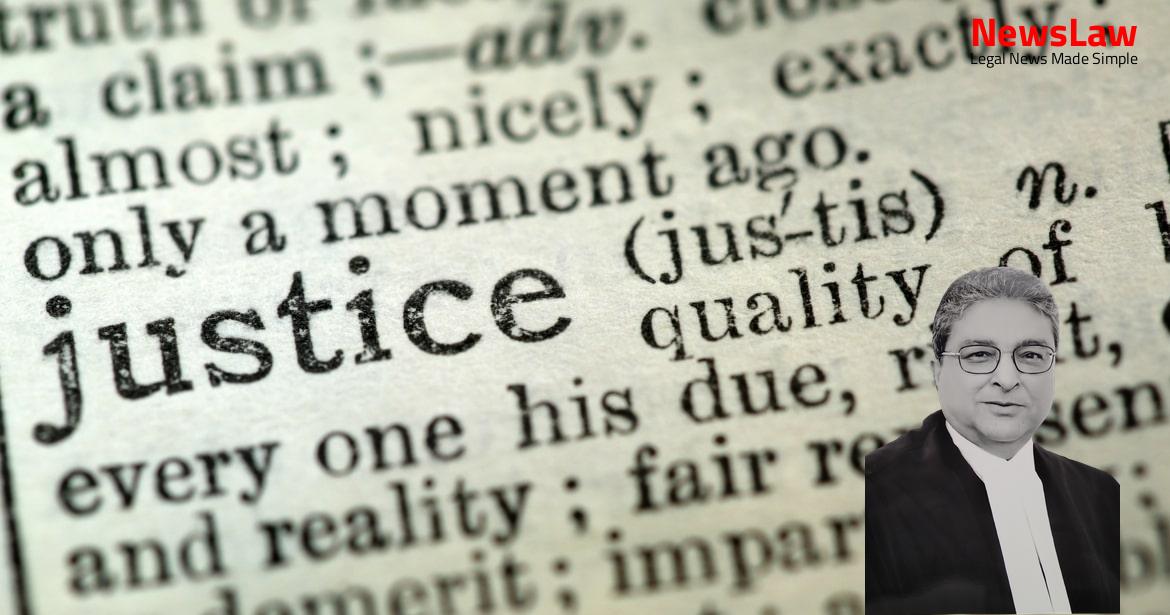Delve into a detailed legal analysis of the court’s approach to anticipatory bail in cases falling under the POCSO Act. The focus is on the statutory presumption of guilt, the relevance of custodial interrogation, and the impact on the victim’s well-being. This summary highlights the importance of considering specific facts and circumstances of each case while balancing the rights of the accused and the gravity of the allegations.
Facts
- The mother of the victim child has approached the Court being aggrieved by the grant of anticipatory bail to the accused.
- The incident involved the sexual assault of a 12-year-old girl by her maternal uncle.
- The victim’s academic performance suffered post the incident, leading her parents to seek counseling.
- The incident took place in the bedroom of the accused, where he made inappropriate advances towards the victim.
- Despite a delay of about 6 months in reporting the crime, the prosecution’s case is not to be disbelieved.
- The accused has been granted conditional anticipatory bail by the High Court.
- The terms of the bail include the accused appearing before the Investigating Officer for interrogation and cooperation in the investigation.
Also Read: Analysis of Cheating and Forgery in Passport Case
Arguments
- Learned counsel pointed out that the petitioner, being an advocate, has high influence in society and among the police, posing a risk of interference with the investigation.
- Granting bail may not be in the interest of the victim, and the well-being of the victim is a relevant factor in POCSO cases.
- The Special Judge relied on the decision of the Kerala High Court in Joy v. State Of Kerala, where the presumption under Section 29 of the POCSO Act was considered while dealing with bail applications of those accused under the Act.
Also Read: Discrepancy in Date of Birth: Court’s Legal Analysis
Analysis
- The observations made in Para 9 of the impugned order are unwarranted and overlook the specific allegations in the FIR supported by the victim’s statement under Section 164 of the Code.
- The presumption should not lead to ignoring the prima facie case against the accused and granting anticipatory bail without thorough consideration.
- The High Court granting protection against arrest hinders the Investigating Officer’s ability to conclude the investigation freely in cases with serious allegations.
- The traumatized state of the girl child, affecting her academics, and the legislative intent reflected through Section 29 of the POCSO Act should dissuade a court from granting pre-arrest bail.
- A strong prima facie case against the accused should be a crucial factor in deciding anticipatory bail applications, considering the severity of the allegations and punishment involved.
- The presumption under Section 29 of the POCSO Act is not absolute and custodial interrogation can be a valid reason to deny anticipatory bail, even if not immediately required for investigation.
- Prima facie materials supporting the prosecution case exist in the case diary, indicating the need for thorough investigation and legal action.
- Claims of the case being retaliatory in view of property disputes between parties are refuted with evidential timelines and lack of discord in ‘Whatsapp’ chats post-incident.
- Even if custodial interrogation is not immediately required, the discretionary relief of anticipatory bail should not be granted in cases of serious allegations.
- The statutory presumption under Section 29 of the Act does not mean the prosecution version must be accepted as truth in every case.
- The court must consider the presumption under Section 29 of the PoCSO Act when dealing with a bail application.
- The necessity of custodial detention should be evaluated on a case-by-case basis.
- Custodial interrogation may not be required if nothing needs to be recovered, but the impact on the victim’s mental condition should also be taken into account.
- Granting or refusal of anticipatory bail should depend on the specific facts and circumstances of each case.
- The court must presume the commission of offenses by the accused unless proved otherwise, as mandated by Section 29 of the Act.
- Inherent infirmities or improbabilities in the prosecution’s version may cast doubt on its credibility.
- The misconception that anticipatory bail should be granted solely due to the absence of a case for custodial interrogation must be dispelled.
- Custodial interrogation is a relevant aspect to be considered alongside other grounds for anticipatory bail.
- Frivolity in prosecution should be considered, and if there are doubts about its genuineness, the accused is entitled to anticipatory bail.
- The Special Court shall presume that a person prosecuted for committing, abetting, or attempting to commit certain offenses under Sections 3, 5, 7, and 9 of the Act is guilty unless proven otherwise.
- The High Court’s decision to grant anticipatory bail to the respondent No. 1 was a serious error.
- Section 29 of the POCSO Act was not necessary to determine this error.
- The court believed that the High Court used its discretion improperly in favor of the accused.
Also Read: 2-1 Verdict Halts Conviction, Dissent Highlights Potential Flood of Unclear Legal Rulings
Decision
- Appeal allowed and impugned judgment set aside
- Investigating Officer granted liberty to proceed further
- No expression of views on the merits of the case
- Law will take its own course
Case Title: SUMITHA PRADEEP Vs. ARUN KUMAR C.K (2022 INSC 1133)
Case Number: Crl.A. No.-001834-001834 / 2022



